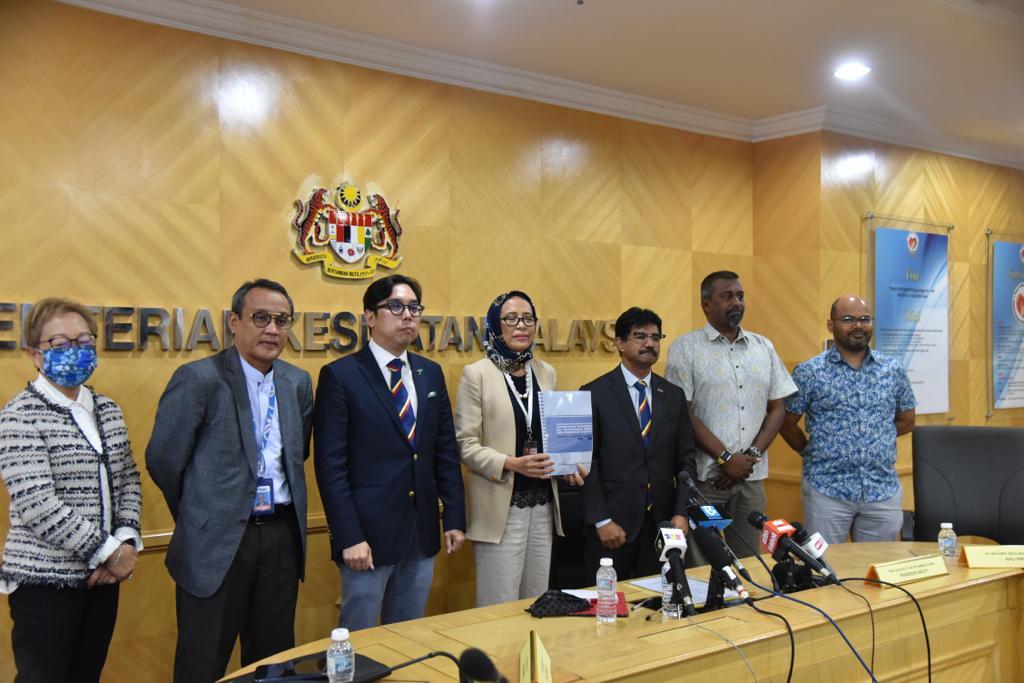KUALA LUMPUR, Sept 1 – The Academy of Medicine of Malaysia (AMM) today urged the Healthcare Work Culture Improvement Task Force (HWCITF) to produce additional analysis specific to medical practitioners in its review of the public health care sector’s workplace culture.
AMM, a professional body of medical specialists across specialties, noted that medical practitioners of Grade 41 and above comprised less than 23 per cent of 110,411 respondents in HWCITF’s online survey among Ministry of Health (MOH) staff, with house officers and junior doctors making up only 11 per cent of total respondents.
“This clearly shows an engraved hesitancy and doubt on their anonymity and fear of compromising their job as a possible consequence of participating in the survey,” AMM said in a statement today.
“We encourage the taskforce to extract and collate the responses of the 25,000 medical practitioners to create a much more feasible and reliable quantitative analysis.
“We would also like to request the 14,000 pages of comments and views be reviewed for a detailed qualitative analysis and ultimately, provide practical recommendations from these data.”
Although HWCITF claimed to have received more than 14,000 pages of verbatim feedback on MOH’s work culture, the task force’s report did not highlight any personal testimonies or even state the main problems cited by respondents, simply saying: “Overall, respondents shared different experiences throughout their service in MOH.”
AMM noted that much of HWCITF’s 162-page report was based on analysis of the task force’s survey that polled MOH staffers across 30 service schemes.
“However, many of the respondents are not medical practitioners, hence there are limitations to the quantitative analysis and reporting.”
HWCITF reported that only 7 per cent of total survey respondents said they experienced workplace bullying or harassment and that just 18 per cent perceived their work culture as negative. Figures specific to housemen or junior medical officers were not provided.
“The report failed to distinguish the different categories of bullying with clear definitions and disclose the prevalence of bullying within different demographics and health care facilities. This makes the report less practical,” AMM said.
“Failure to identify the root of the issue will correspond to the creation of non-viable solutions and recommendations. We hope the Ministry of Health will address this anomaly seriously as we are concerned with the possible wastage of time, effort and finances invested on this endeavour, if the right measures are not taken at this juncture.”
The medical specialists’ group said the problems of doctors’ incompetence at the higher education level and the toxic work culture and human capital issues within public health care must be addressed by various ministries – MOH, the Ministry of Higher Education, and the Ministry of Human Resources – and governmental organisations.
“We urge a continuous collaboration and discussion among various stakeholders such as policymakers, healthcare workers, psychology experts and NGOs (non-governmental organisations) to enable unprejudiced policies and confidential complaint channels, specially to protect the welfare of our health care professionals,” AMM said.
“This needs to be incorporated as part of the upcoming health reform strategies to ensure its sustainability. We expect the policies to be effectively operationalised at every health care facility under the purview of heads of departments and hospital directors to ensure the continuity of quality health care delivery.”
HWCITF’s three-month-long investigation – chaired by former Ministry of Science, Technology and Innovation secretary-general Prof Siti Hamisah Tapsir – was triggered by the death of a Penang Hospital houseman last April that led to subsequent anecdotal reports of workplace bullying and sexual harassment of junior doctors. The task force concluded it had no firm evidence to link the Penang Hospital house officer’s death to workplace bullying.








